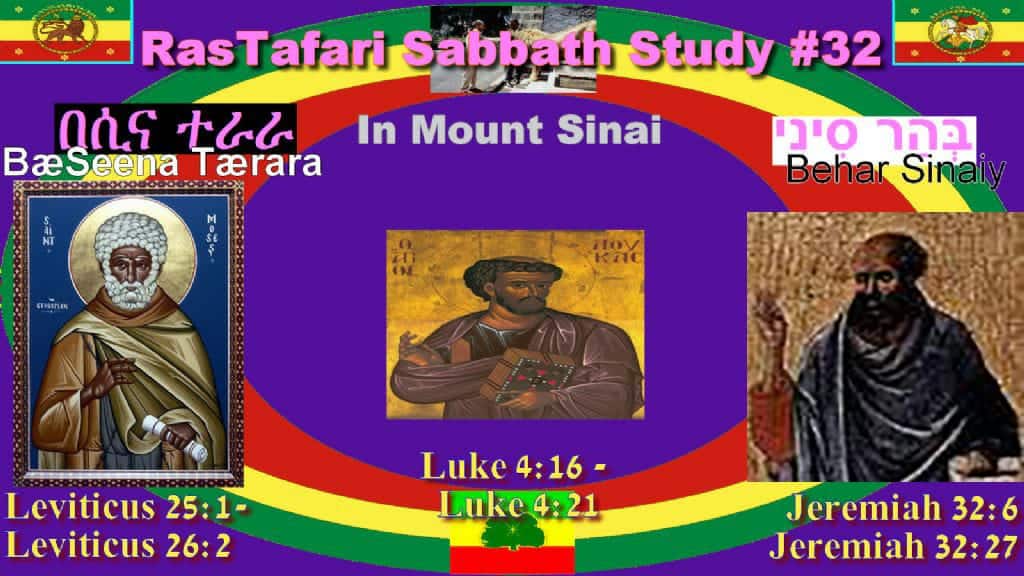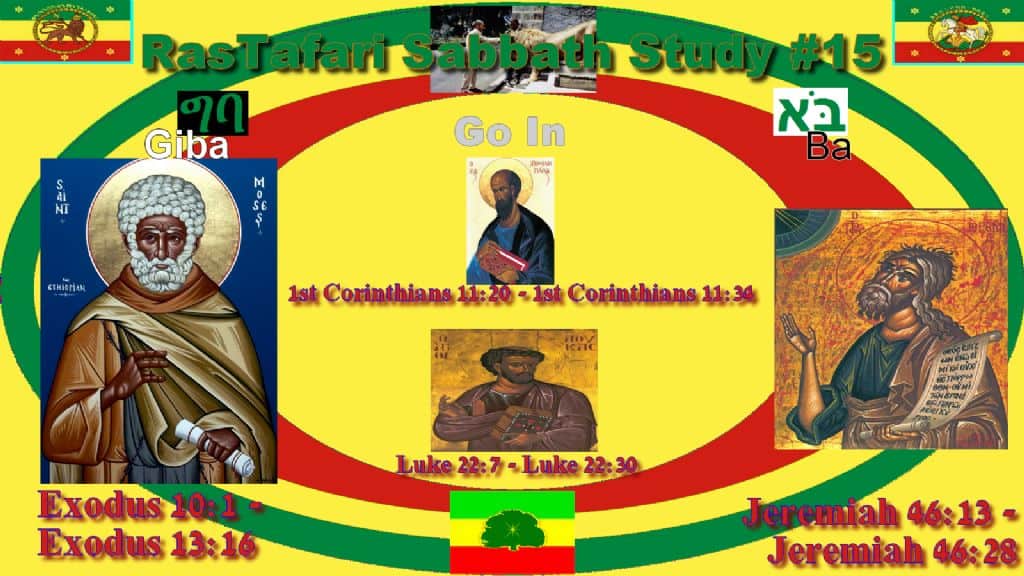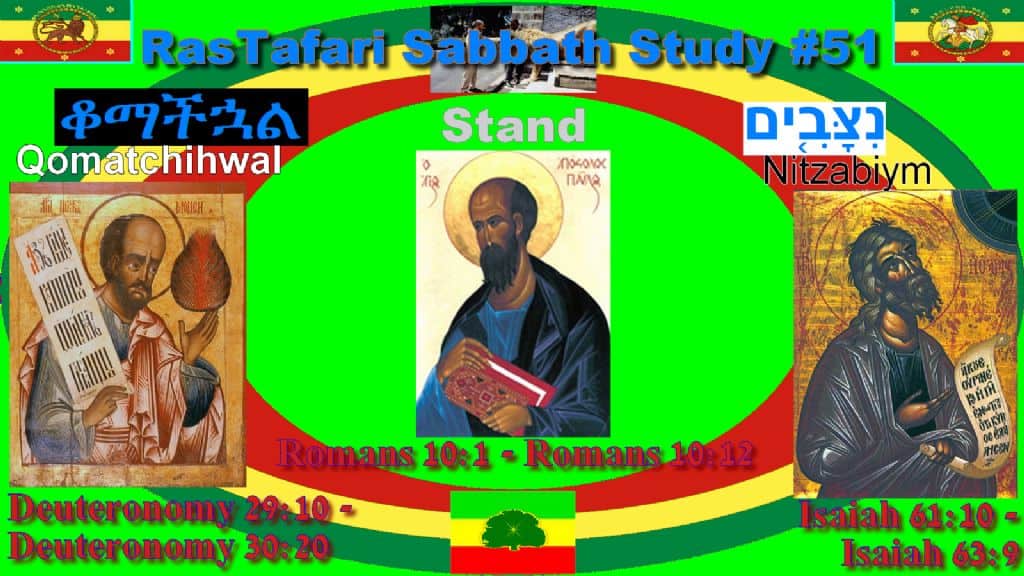This Week's Portion #16
Beshalach | בשלח | "When he let go/When he sent" በለቀቀ ጊዜ | beleq’eq’e gize
*For a PDF version of All the Torah Portions Schedule, click here to download!
2. Prophets Reading
Judges 4:4-5:31
3. New Testament Reading
John 6:15-71; 1 Cor 10:1-5
Portion Outline - TORAH
- Exodus 13:17 | The Pillars of Cloud and Fire
- Exodus 14:1 | Crossing the Red Sea
- Exodus 14:26 | The Pursuers Drowned
- Exodus 15:1 | The Song of Moses
- Exodus 15:20 | The Song of Miriam
- Exodus 15:22 | Bitter Water Made Sweet
- Exodus 16:1 | Bread from Heaven
- Exodus 17:1 | Water from the Rock
- Exodus 17:8 | Amalek Attacks Israel and Is Defeated
Portion Outline - PROPHETS
- Judges 4:1 | Deborah and Barak
- Judges 5:1 | The Song of Deborah
Portion Study Book Download & Summary
 SHEMOT Hebrew Book of Exodus - Torah Portion Vol.2 (FREE PDF)
SHEMOT Hebrew Book of Exodus - Torah Portion Vol.2 (FREE PDF)
The sixteenth reading from the Torah is named Beshalach (בשלח), which means “When he sent.” The title comes from the first verse of the reading, which can be literally translated to say, “And it happened when Pharaoh sent out the people.” The reading tells the adventures of the Israelites as they leave Egypt, cross the Red Sea, receive miraculous provision in the wilderness and face their first battle.
Portion Commentary
Messianic and Davidic Dance
Thought for the Week:
How did the Israelites have tambourines in the desert? The righteous women of that generation were certain that God would perform miracles for them, so they prepared tambourines and dances while still in Egypt. (Rashi and Mechilta on Exodus 15:20)
Commentary:
Miriam the prophetess, Aaron’s sister, took the timbrel in her hand, and all the women went out after her with timbrels and with dancing. (Exodus 15:20)
Singing songs of praise and worship is popular in one form or another in virtually every type of Christianity or Judaism. Messianic Judaism has developed a unique worship expression called Davidic Dance. In all but the most orthodox of Messianic Jewish congregations, it is common to find worshippers joining together in dance circles while the rest of the congregation sings. The dances are sometimes elaborately choreographed. Sometimes they are simple Israeli folk dances.
Messianic dance might be a bit surprising for newcomers to a Messianic synagogue. In many religious backgrounds, dancing is banned along with the “cardinal sins” of drinking, smoking and gambling. People coming from similar religious places might be perplexed to come into a house of worship and find people engaged in dance.
Messianic dance has its roots in the Song at the Sea. After Moses and the sons of Israel had finished singing the great hymn of Exodus 15, Moses’ older sister, Miriam, took a timbrel in her hand and led the women in song and dance. Biblical dance was an expression of celebration. For example, when King David victoriously returned from battle with the Philistines, the women of Israel came out singing and dancing to meet him. When King David brought the ark of the covenant into Jerusalem, he danced before it all the way into the city. The prophet Jeremiah tells us that when the Messiah comes, there will be dancing. “Then the virgin will rejoice in the dance, and the young men and the old, together” (Jeremiah 31:13).
Dance was a natural expression of joy and worship in ancient Israel. The psalmist enjoins the worshippers in the Temple to praise the LORD with dancing:
Let them praise His name with dancing;
Let them sing praises to Him with timbrel and lyre.
Praise Him with timbrel and dancing;
Praise Him with stringed instruments and pipe. (Psalm 149:3; 150:4)
In Judaism, dance has always been a popular way of celebrating and expressing joy. In some sects of Judaism, holy men dance with ecstasy in the presence of God. However, in non-Messianic Judaism, dance in a synagogue service is unusual. It ordinarily only happens at special occasions like Simchat Torah. Messianic Judaism has combined dance with contemporary worship music and made it a staple of the regular Messianic worship experience. It looks like Messianic Jewish dance is here to stay.
That being the case, we should note that only the women danced at the Red Sea. Why didn’t the men dance? Every time the Bible mentions dance, it is gender separated. In biblical dance, men and women did not dance together. The only time men and women were separated in the Temple was during the dancing that accompanied the Feast of Tabernacles. Since Messianic Judaism has fallen in love with Jewish dance, perhaps we should maintain its biblical integrity by keeping it gender separated.
Middot U’Mitzvot (Character and Deeds)
Manna and Money and Materialism
But they did not listen to Moses, and some left part of it until morning, and it bred worms and became foul; and Moses was angry with them. (Exodus 16:20)
Manna was amazing stuff. It had all the nutrition necessary to sustain a large population for forty years. It appeared every morning and in an adequate amount so that no one went hungry. It could be cooked, boiled or baked. However, it could not be stored. If anyone tried to hoard it, it turned rancid overnight.
Manna can teach us about money and materialism. God provides the bounty of the material world for our welfare. He provides adequately for our needs, sometimes in scarcity, sometimes with abundance, but always with sufficiency. “He who had gathered much had no excess, and he who had gathered little had no lack” (Exodus 16:18). When we try to hoard wealth, though, it can turn into something spiritually ugly. Just as the manna turned rancid and wormy, hoarded wealth sickens the soul. It causes us to cling to material things. We no longer need to rely on God because we can rely upon our savings and investments. We no longer need to pray for our daily bread, as Yeshua taught us to do. As Yeshua warned us, “Truly I say to you, it is hard for a rich man to enter the kingdom of heaven” (Matthew 19:23).
Not that there is any special merit in being poor. But it is much more difficult to be affluent and keep your spiritual footing. The wealthy disciple must exercise constant vigilance against the deceits of wealth. He must keep his hand open and generous, and he must be able to lay it all aside for the sake of the kingdom.












































































































